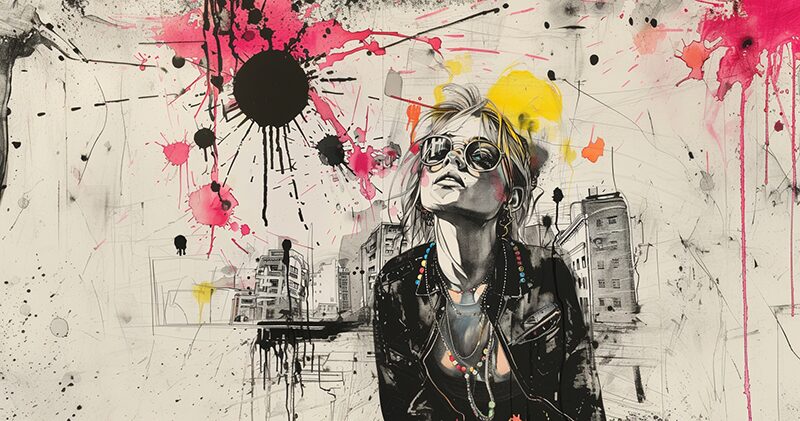
Taylor’s World: Music’s Digital Doom?
The line between reality and science fiction blurs in a world teeming with technological advancements. A recent thought experiment raises eyebrows and questions the musical power of AI. Could we really face a future where all music is replaced with Taylor Swift covers? Let’s dive into this scenario and what it means for preserving our digital heritage.
AI’s Growing Influence in Music
Imagine turning on your favorite music app only to find every track transformed into a Taylor Swift cover. Sounds like a plot from a sci-fi novel, right? Researchers Nick Collins of Durham University, UK, and Mick Grierson at the University of the Arts London presented this scenario as a stark warning. Their research suggests that if left unchecked, AI could rewrite musical history, erasing the contributions of icons like Beethoven and The Beatles.

Midjourney: Taylor Swift Dystopian Future
This “Swift’s Version” of history highlights the potential dangers of AI manipulation. While the notion of an AI Swiftpocalypse seems far-fetched, the underlying concern is genuine. The researchers urge the development of strategies to protect data from AI corruption, emphasizing the importance of safeguarding music, literature, scientific research, and historical records.
The Cost of a Swift-Centric World
Creating AI-generated covers of every recorded song as “Taylor’s Versions” would be a Herculean task. The researchers used current AI models to produce Swift-style renditions of classics like Queen’s Bohemian Rhapsody and The Beach Boys’s Wouldn’t It Be Nice. They estimate that to cover all recorded music would require 1.67 billion kilowatt-hours of electricity, costing over $266 million. Interestingly, that’s a bill Taylor Swift could theoretically foot herself.

Midjourney: Taylor Swift Dystopian Future (Zoomed Ou X2)
This experiment serves as a wake-up call to the potential for AI to access and alter digital and physical backups of music. While digital archives give a sense of security, the researchers point out the risk of future AI technologies being able to corrupt our cultural heritage.
Securing Our Digital Future
The debate among experts on the threat AI poses is ongoing, with many advocating for stringent checks and balances. The integration of AI into society brings forth not just opportunities but also challenges. Addressing biases and ensuring responsible AI use are crucial steps toward a future where technology enhances rather than erases our cultural landmarks.

Zoomed out taylor swift future ai dystopia (Zoomed X5)
While the risk of losing all recorded music to Taylor Swift covers remains low, this thought experiment opens the floor to broader discussions about data protection in the digital age. As we march forward, proactive measures to secure our digital legacy against AI corruption are not just advisable—they’re imperative. After all, preserving human culture against unforeseen threats is a task we must undertake now, before it’s too late.










